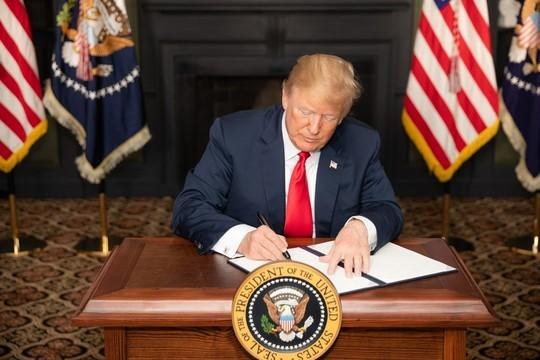JCPOA-related Waived U.S. Sanctions Snap Back on Iran

On August 7, 2018, the U.S. reinstated the first wave of sanctions against Iran as the 90-day wind-down period concluded. The Trump administration reimposed sanctions that prohibit Iran purchasing U.S. banknotes, commercial aircraft, trading gold and metals, and business with Iran’s automotive sector.
The snapback provisions were evoked by President Trump’s May 8, 2018 decision to withdraw from the 2015 Joint Comprehensive Plan of Action (“JCPOA”). Under direction from the Administration, federal agencies implemented 90-day and 180-day wind-down periods for activities involving Iran that were consistent with the sanctions relief detailed in the JCPOA.
In addition to the reinstatement of select pre-nuclear deal secondary sanctions, the Administration terminated JCPOA-related authorizations that permitted the importation of Iranian-origin carpets and foodstuffs; the exportation of civilian aircraft to Iran; and activities undertaken pursuant to General License I.
A senior administration official said, via teleconference, that the snapback of sanction of Iran is part of the administration’s strategy to apply financial pressure on the Government of Iran, as a means to severely limit Iran malign’s behavior.
The reimposed secondary sanctions are designed to penalize non-U.S. companies for conducting certain business with Iran lacking any U.S.-nexus. The United States will have the authority to sanction non-U.S. entities that are involved with Iran: in the purchase of U.S. dollar bank notes by the Government of Iran, trade in gold or precious metals, the sale or supply of raw materials, the sale or supply of goods/services to the Iranian automotive sector, and the purchase/facilitation of Iranian sovereign debt. (Click here for specifics on the wind-down periods).
The second wave of sanctions, also waived by the JCPOA, will be reimposed upon the conclusion of the 180-day wind-down period on November 5, 2018. These sanctions include measures that permit the U.S. government to sanction third-country dealings with Iran’s energy and shipping sectors; petroleum-related dealings, and transactions between foreign financial institutions and the Central Bank of Iran.
The impact of the Trump Administration’s withdrawal from the JCPOA has been extensive and politically divisive. An already strained relationship between the United States and Turkey, two NATO allies, is at risk of further tension because of Turkey’s reliance on energy trade with Iran. Given the significance of Turkish patronage to the Iranian energy sector, it is likely that it will be the administration’s priority to persuade Ankara to comply with the sanctions against Iran. However, the past administration under President Obama granted waivers to Turkey for sanctions on Iran, likely for these same reasons.
Interestingly enough, the Trump administration has been considering granting waivers for certain countries from oil sanctions on Iran that are due to be imposed with the closure of the 180-day wind-down period on November 4, 2018. For instance, Azerbaijan received an exemption for a natural gas project, involving Iran’s government-owned oil company, which provides energy security and independence from Russia; Japan is currently negotiating with the U.S. to continue importing Iranian oil in an effort to avoid setbacks on its energy supply and business activity.

